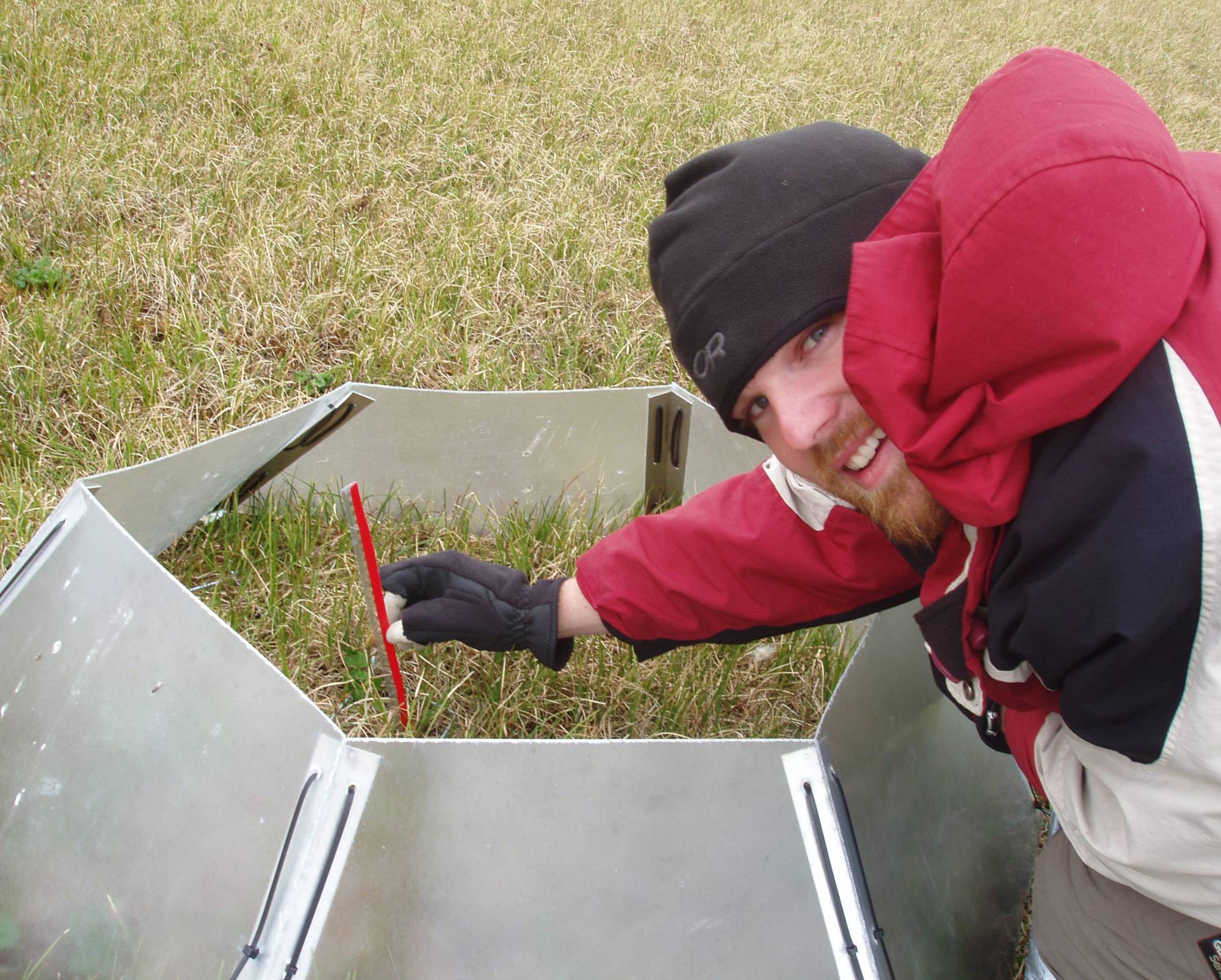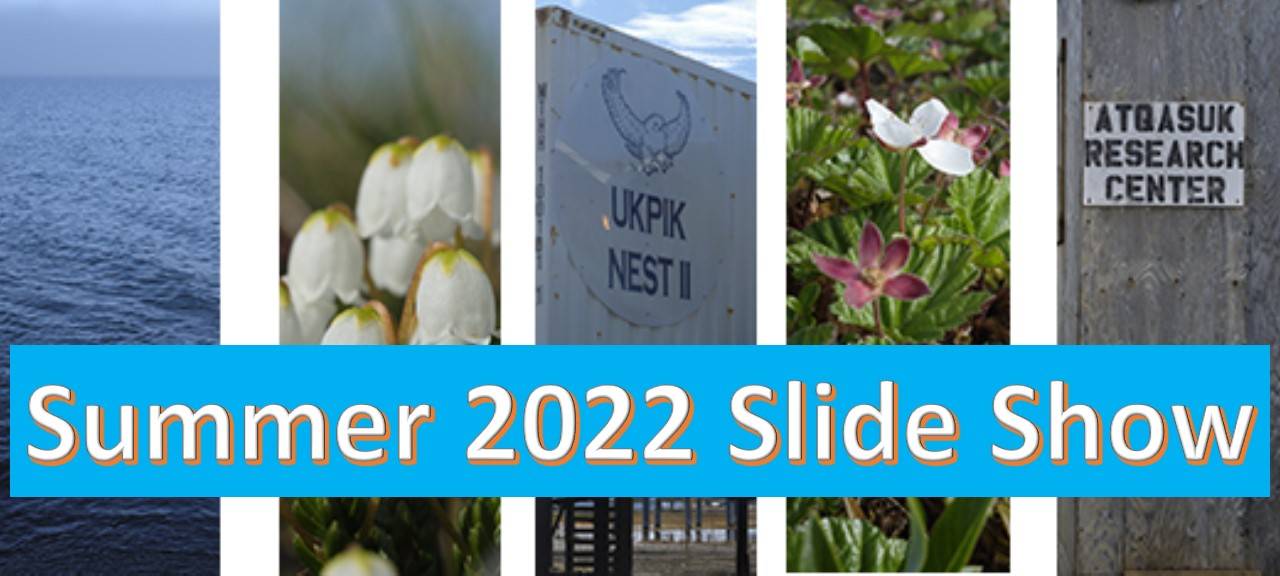Research Opportunities
No Summer 2026 Field Season
for STEM related opportunities in the Arctic aimed at undergraduates see the OneSTEM Hub
Researchers Needed
The Arctic Ecology Program relies on students to do research. The project has enjoyed long-term funding and is always looking for new team members.
Generally undergraduate students work on the project more than just the summer. Almost all team members present their own independent research -sometimes overseas- and many students return for more than one summer.
Applications should include the following:
- Personal Statement (1 page clearly stating your career goals, how working on this project will help meet these goals, and potential independent research ideas)
- Resume (including references with contact information)
- University Transcript (unofficial or official)
- Letter(s) of reference (optional)
Funding was not renewed due to new funding priorities within the federal government.
The earliest possible field season is summer 2027.
See flier for details and the Common Questions and Responses below (along with all the other materials elsewhere explaining the research)
For more details see the following PDF Fliers which apply any year (see the link to the right <under the photograph> for details specific to this year).
Each year a new crew is hired
Hiring is generally finalized at the end of Fall semester or the beginning of Winter semester prior to the summer field season (details are provided in the pdf above). The ideal student is someone with great determination and a strong interest in ecological research. Students of all levels (freshman to senior) are encouraged to apply. Prior experience is less important than a strong work ethic. The field season is long and demanding and it takes a special type of person to do well. Graduate student opportunities are also available.
If interested, talk to a Member of the Arctic Ecology Program for more details (also see examples of former student projects).
Common Questions and Responses
Who can apply?
Anyone. The project is an ideal training ground for a career in ecological field research. By no means do you need to be committed to graduate school in ecology, we have also had great success hiring people that want to be teachers or other professions. The most important thing is that the experience will benefit you! It is a lot of hard work, therefore it is a much better experience for everyone if the effort you put into the research benefits your professional development. It is also important that you like plants simply because we look at plants all day, and if do not really like plants, it will make for a very long summer.
Students from universities other than GVSU are encouraged to apply and have been hired in the past. All else being equal, preference will go to GVSU students.
Why should I apply?
It is a great opportunity to be fully immersed in ecological research. We are looking for a research team, not just a field assistant for the summer. Typically the team meets regularly before and after the summer and almost everyone does some form of independent research (see the pages of individual members for examples). You will get out of it what you put into it. Undergraduates that have really taken their own initiative and worked hard on the project have attended international research conferences (see Traveling) and several have stayed on the project as Master’s students. It is a very unique opportunity to network with researchers from across the USA and around the world.
What prior experience is necessary?
None, you will be taught all you need to know. There is a balance between hiring people with great prior experience (who also tend to be near graduation and thus unlikely to return for an additional summer) versus someone younger (who has little to no experienced but is more likely to return for more than one summer). Thus, everyone from freshman to graduating seniors are encouraged to apply. Ideally candidates would have some experience with plants and familiarity with ecology, computers and basic statistics.
What is a typical day like?
Days can be long and tiring. Typically we are in the field for 6-12 hours and in the evenings we enter data, download data, and prepare for the next day. This can leave little personal time. See the Research Expectation, all the Photos pages (especially Working & Not-Working), and Videos.
We also created "A Day in the Arctic" as a short overview of what we do.
What are the living conditions like?
The living conditions are really not that different from anywhere else in the USA.
In Utqiaġvik we stay in a dorm like housing with shared bathrooms and one large kitchen and dining area, there are a few smaller gathering rooms also. Typically people have their own room for most of the summer (but sometimes we share rooms). There are a lot of other researchers in the facility and it can be crowded at times. Because we share facilities you can get to know people doing very different research and there are opportunities to visit their field sites and see their research first hand.
In Atqasuk we stay in a 4 bedroom house. There is one bathroom and one open living area. There are 13 beds in total, but it is unusual to have more than two groups at the house for more than a few days. In general there are far few researchers in Atqasuk and it is not unusual for the GVSU crew to be the only people at the house for much of the summer.
There are laundry facilities at both locations. For more details see the webpage for Utqiaġvik and Atqasuk.
What do you do for fun?
Neither location is a popular tourist destination. Ideally the field crew will have great group dynamics and will work well together which is great because we work almost every day for most of the day. There are interesting places to walk around other than our field sites. In particular visiting other research sites can be great. Often times we will have a quiet evening entering data while watching a movie.
In Utqiaġvik there are often group potlucks on the weekends and there are sometimes research seminars. There are a number of restaurants in town and it is not hard to get a group of people together for a fire at the beach, a quick dip in the ocean, or a game of cards in the evening.
In Atqasuk there is a community center that does bingo and other occasional events. The region has a diversity of landscapes and it can be fun to walk or take a long ride on an ATV.
Are the mosquitoes that bad?
Yes, they can be really abundant particularly in Atqasuk. It mostly depends on the weather, windy and cold days have few bugs; therefore they are generally not a problem in Utqiaġvik. A little bug dope makes a big difference and once you get used to them it is typically not a big deal (if you are someone who hates mosquitoes or who has a significant allergic reaction, then you would be miserable). Most people wear a head net at the beginning of the season, and then later only on occasional bad bug days.
Is the sun always up?
Yes, the sun first sets in August, but only for a few minutes. It never really gets dark until the time we leave and even then it is more of a twilight. We leave before it truly gets dark, therefore it is very unlikely that you will see the northern lights. The long days make it easy to work long hours in the field. It can be a little disorienting if you are not careful. We generally black out the windows in our bedrooms and make a point to wind down before going to bed in order to sleep well. For most people it is an easy adjustment.
What would I need to bring?
You are responsible for your own field gear and your own airline baggage. The project will provide a stipend (see below), airfare, food, and bug dope. The Field Gear webpage explains all the recommended things to bring including personal items.
What are the typical travel dates?
We typically arrive in Utqiaġvik on either the first or second Tuesday of June (depending on the year) and depart the Tuesday before GVSU classes begin in August. More experienced students may stay longer. Each year can be a little different and there may be some flexibility. We typically fly Grand Rapids to Chicago or Minneapolis to Anchorage to Utqiaġvik. Sometimes people will do a long layover (one to many days) in Anchorage to explore Alaska on their way to or from the field sites.
How has COVID impacted the field season?
The project has support from the federal government and robust precautions must be followed to minimize the potential to spread COVID or other infections diseases to remote locations. We expect all crew members will be vaccinated. In the summer of 2020 we did not have a field season and the 2021 the field season was greatly reduced. We more or less returned to a new normal from 2022 onward.
How will I be paid?
You will be paid a stipend of at least $5,000 for the summer. Technically individuals are paid around $11/hr, 38 hrs a week for around 12 weeks (although we will certainly work more than 38 hrs a week); payments will be made via direct deposit bi-weekly according to the University schedule. All living expenses (food and housing) and all travel (airfare excluding baggage) are paid directly by the project. There is also opportunity to work the semester prior to and after the summer.
How do I submit my application?
Either drop off your application at Professor Hollister's office 3390k KHS or send it as an email attachment.


